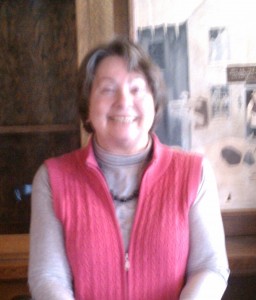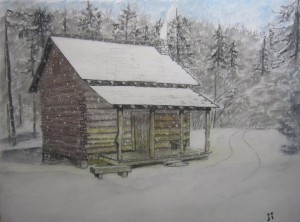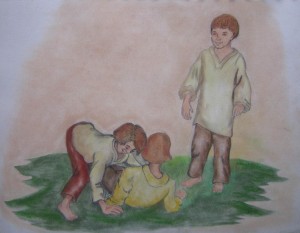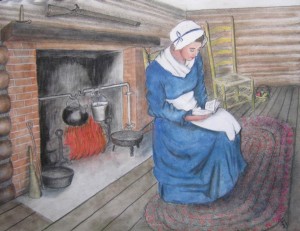 Welcome to my blog! The week of 2 July – 9 July, I’m participating with more than one hundred other bloggers in the “Freedom to Read” giveaway hop, accessed by clicking on the logo at the left. All blogs listed in this hop offer book-related giveaways, and we’re all linked, so you can easily hop from one giveaway to another. But here on my blog, I’m posting a week of Relevant History essays, each one focused on some facet of the American War of Independence. To find out how to qualify for the giveaways on my blog, read through each day’s Relevant History post below and follow the directions. Then click on the Freedom Hop logo so you can move along to another blog. Enjoy!
Welcome to my blog! The week of 2 July – 9 July, I’m participating with more than one hundred other bloggers in the “Freedom to Read” giveaway hop, accessed by clicking on the logo at the left. All blogs listed in this hop offer book-related giveaways, and we’re all linked, so you can easily hop from one giveaway to another. But here on my blog, I’m posting a week of Relevant History essays, each one focused on some facet of the American War of Independence. To find out how to qualify for the giveaways on my blog, read through each day’s Relevant History post below and follow the directions. Then click on the Freedom Hop logo so you can move along to another blog. Enjoy!
 Relevant History welcomes back Sheila Ingle. A retired educator and teacher of writing for 37 years, Sheila’s interest and love for history has become a part of her new writing career. She has published articles in Sandlapper and the Greenville Magazine on the Citadel Class of ‘44 and the Frank Lloyd Wright home in Greenville, S. C. Her three biographies for young readers tell the stories of Kate Barry, Martha Bratton, and Elizabeth Jackson. Writing about forgotten women has now led her to write about mill women in the early 20th century. For more information, check her web site and blog, and look for her on Facebook and Twitter.
Relevant History welcomes back Sheila Ingle. A retired educator and teacher of writing for 37 years, Sheila’s interest and love for history has become a part of her new writing career. She has published articles in Sandlapper and the Greenville Magazine on the Citadel Class of ‘44 and the Frank Lloyd Wright home in Greenville, S. C. Her three biographies for young readers tell the stories of Kate Barry, Martha Bratton, and Elizabeth Jackson. Writing about forgotten women has now led her to write about mill women in the early 20th century. For more information, check her web site and blog, and look for her on Facebook and Twitter.
*****
This is a biography of Elizabeth Jackson, the mother of President Andrew Jackson.
I believe that environment and heredity influence a person, and it was fascinating to me to research the mother of one of our Presidents. Here is a snippet of her life.
Andrew and Elizabeth Jackson were living in Boneybefore, Ireland, in 1764. They were tenant farmers and not making enough money from their crops and sheep to make ends meet. Taxes continued to go up, and the weather continued to cast blights on their harvests. The Scotch-Irish couple worked hard, but life under the British rule was a hard-scrabble existence. Disrespect and prejudice for their Presbyterian religion was also challenging.
A new life in a new land captured their thoughts.
In April 1765, Andrew and Elizabeth Jackson crossed the Atlantic Ocean to the colonies with their two children. Hugh was two, and Robert only a babe. The eight week voyage from Larne, Ireland, was uneventful.
 They bought land close to Elizabeth’s family and erected a small one-room cabin. They planted crops and started over. Happily for two years, the Jacksons worked hard and struggled to eke out a living in this red clay, but in March 1767, while chopping wood on a cold, spring day, Andrew Jackson had an accident and died shortly thereafter. Elizabeth, nine months pregnant with their third son, was a widow at thirty with all the responsibilities of a single mother in eighteenth-century America.
They bought land close to Elizabeth’s family and erected a small one-room cabin. They planted crops and started over. Happily for two years, the Jacksons worked hard and struggled to eke out a living in this red clay, but in March 1767, while chopping wood on a cold, spring day, Andrew Jackson had an accident and died shortly thereafter. Elizabeth, nine months pregnant with their third son, was a widow at thirty with all the responsibilities of a single mother in eighteenth-century America.
Though small in stature, Elizabeth was strong and resilient in spirit. She adapted to life’s changes and disappointments and put others’ needs before herself. Working hard and pushing forward through challenges was the model she set for her sons.
 After Andrew’s death, her sister and brother-in-law, Jane and James Crawford, asked Elizabeth to move in with their family. Jane had been sick for several years and needed help with the housekeeping. Their eight children needed more supervision than she could give, so the Jacksons joined the Crawford household.
After Andrew’s death, her sister and brother-in-law, Jane and James Crawford, asked Elizabeth to move in with their family. Jane had been sick for several years and needed help with the housekeeping. Their eight children needed more supervision than she could give, so the Jacksons joined the Crawford household.
Busy with the daily chores of planning and preparing meals for fourteen individuals in a fireplace, tending to the needs of eleven children and her ailing sister, mending, spinning, managing a garden, churning, etc., Elizabeth continued to weave cloth for the community. She earned money from the neighbors by selling the cloth and was known for the quality and expertise of her work.
Elizabeth wanted her sons to have a formal education. All three attended the church and community schools, but Hugh and Robert had more aptitude for outdoor activities, and they wanted to farm. Andy learned to read at an early age, and his mother thought he might become a minister. His personality was not for a scholar’s life though, and the Revolutionary War interrupted his education.
 Elizabeth’s faith in God and His Providence was a major ingredient in her character. She had a small Bible that she carried in her pocket, and she prayed often. She taught her sons the importance of obedience to the Bible’s teachings and encouraged them in their loyalty to each other and the rest of their family. Elizabeth urged deeds and words honoring God, family, and country.
Elizabeth’s faith in God and His Providence was a major ingredient in her character. She had a small Bible that she carried in her pocket, and she prayed often. She taught her sons the importance of obedience to the Bible’s teachings and encouraged them in their loyalty to each other and the rest of their family. Elizabeth urged deeds and words honoring God, family, and country.
The Waxhaws settlement was connected to Charleston via the Catawba Path, also known as the Camden Salisbury Road, with many travelers. Merchants and Indian traders carried their wares to markets. Farmers drove their cattle to sale. New settlers in the Conestoga wagons or on foot were daily visitors. All of these travelers kept trade, culture, and news flowing into the upcountry where the Jackson family lived. Because of the proximity of the Crawford home, visitors kept them in the know with information and intelligence.
On 20 June 1779, sixteen-year-old Hugh died after the Battle of Stono Ferry near Charlestown. The two-hour battle was not a win for the Patriots, but the militia fought bravely. Hugh was not wounded but died of heat exhaustion.
Elizabeth nursed the dying and wounded after the Battle of Waxhaws. She hid with her family from the British, who stole and burned the patriots’ farms.
Robert and Andy were under the command of the experienced Major William Richardson Davie. Because of his youth, only thirteen, Andy served as a messenger. Guerrilla warfare and destruction was the aim of both sides, and enemy neighbors paid back old insults.
Then in the spring of 1781 both Robert and Andy were captured by the British, along with others in the Waxhaws militia. They were taken to the Camden Jail. Smallpox was in every cell, and before long both boys were afflicted.
Elizabeth Jackson was determined to rescue her sons from this hellhole. She audaciously went to see Lord Rawdon and asked for him to add her sons’ names to a prisoner exchange that was in the works. He was not unhappy to release two sick prisoners.
Their mother nursed them for several weeks, but Robert was too weak and died. She never left Andy’s side until he could walk by himself.
Horrific tales about how the Patriots were being treated on the British prison ships in the harbor of Charlestown began to circulate. Elizabeth found out that several of her nephews were on those ships suffering with cholera. Knowing their chances to survive were small without some kind of nursing, Elizabeth and a couple of women from the Waxhaws community decided they needed to go help the young men. In the fall of 1781, three women left home on a mission of mercy.
Elizabeth’s nephews survived, but she did not. She caught cholera and was buried in an unmarked grave in Charleston.
Elizabeth taught her sons the difference between right and wrong, and freedom and oppression; the importance of helping family and friends; reverence for truth, justice, and freedom; and a deep patriotic devotion to country. Elizabeth Hutchinson Jackson was a Patriot, a South Carolina Revolutionary War Heroine, and the mother of President Andrew Jackson. Her story is worth remembering.
*****
 A big thanks to Sheila Ingle. She’ll give away an autographed copy of her book, Brave Elizabeth, in trade paperback format to someone who contributes a legitimate comment on this post today or tomorrow. Delivery is available in the U.S. and Canada. Make sure you include your email address. I’ll choose one winner from among those who comment on this post by Tuesday 8 July at 6 p.m. ET, then publish the name of all drawing winners on my blog the week of 14 July. And anyone who comments on this post by the 8 July deadline will also be entered in the drawing to win a copy of one of my five books, the winner’s choice of title and format (trade paperback or ebook).
A big thanks to Sheila Ingle. She’ll give away an autographed copy of her book, Brave Elizabeth, in trade paperback format to someone who contributes a legitimate comment on this post today or tomorrow. Delivery is available in the U.S. and Canada. Make sure you include your email address. I’ll choose one winner from among those who comment on this post by Tuesday 8 July at 6 p.m. ET, then publish the name of all drawing winners on my blog the week of 14 July. And anyone who comments on this post by the 8 July deadline will also be entered in the drawing to win a copy of one of my five books, the winner’s choice of title and format (trade paperback or ebook).
**********
Did you like what you read? Learn about downloads, discounts, and special offers from Relevant History authors and Suzanne Adair. Subscribe to Suzanne’s free newsletter.

This title looks so interesting…l love this time period in our history…most certainly NOT boring!
Welcome, Lisa. Not boring — right-o. It’s difficult to imagine how a woman would have coped in Elizabeth’s circumstances, widowed in the backcountry with two small children and another on the way. Our foremothers were tough.
Hello Lisa,
The women of the Revolutionary War weren’t boring, neither were their lives. Theirs were days of sun-up to sun-down with the myriad of chores that were essential for survival. When the war came to their front doors, they made extraordinary decisions that included fighting back.
Delighted to learn about Sheila Ingle as she is from SC and will most likely be posting items that will be of interest to me. While I don’t always get a chance to read your blog and/or it might not be of great interest to me, I most assuredly enjoy following you. Please contine to alert me about postings—I enjoy learning. Thank you.
Hello Trev,
SC is full of historical stories from its beginnings as a colony. Thank you for your interest in my writing.
I love Sheila’s work and the illustrations in her books (by her talented husband, John) add much to provide imagery for the readers. Her three books provide excitement and information for young people. If we do not teach children today to cherish the contributions of these women, citizens of tomorrow won’t understand our history!
Thanks so much, Chris! You have been a great encourager to me. (By the way, this morning, I started by research on the Pacolet River flood in 1903.)
There are so few biographies of Rev War women. Thanks for writing this one. Elizabeth Jackson’s character is worth of emulation by all. It is also so valuable, because it sets the tone for understanding much of the life of Andrew Jackson.
Hello David,
Her character is noteworthy, and she obviously lived out the priorities in her life. It is interesting to me that we know how someone has been brought up, we acquire an inkling of why they make the decisions they make as adults.
I’ve always been interested in how women lived in different historical eras, and this era is one of my favorite. Unfortunately, most bios of historical women are about wealthy, privileged women, which doesn’t tell me much about how average women lived. I had not before known anything about Andrew Jackson’s mother and her life.
My grandparents were tenant farmers in Upsate South Carolina during the Depression and they had a mostly tough life, from what my Dad told me from his perspective as a child living through it. I can imagine just how much more tough it must have been for the Jacksons in the 18th century.
I’ve read before that during this war that there were more casualties because of heat exhaustion than because of wounds. I can believe that. Living in Upstate Scouth Carolina now, even with lightweight modern clothing, I can’t imagine living without air conditioning. I think the invention of air conditioning went a long way in increasing the average life expectancy.
In reference to cholera, I’ve read that trying to avoid cholera was a big reason why the people then drank so much alcohol, particularly beer and ale, because the water wasn’t always safe to drink.
Brave Elizabeth sounds like a wonderful book with beautiful illustrations. I wish a book like this had been available back when I was a kid.
3 points:
1. Nathanael Greene apparently died from heat prostration while touring his Mulberry plantation shortly after the war;
2. My mother, born in 1916, grew up in Florence (pre-AC). I recall summer vacations in the 50’s–I grew up in “mountains” of western Pennsylvania. The heat was sweltering; I recall climbing from the bedroom to the porch, because it was a bit cooler.
3. Francis Marion’s drink of choice was vinegar; the water was characteristically suspect. He did drink some alcohol, as the inventory of his estate (1795) suggested.
Hello David,
I was born in Charleston in 1948, and we lived there for three years. This was before air conditioning.My dad used to tell us stories of sleeping in the bath tub at night filled with cold water;the humidity was fierce.
Researching her story made me realize again the mega differences between living in SC then and now. Also, the choices of women then to make a stand for their convictions was so very admirable. I have written also about two other Upcountry women who refused to tell the British where their militia husbands were. One was tied to her own front porch and hit, and the other had a sickle at her throat. Both stood tall and protected their husbands. It is those average and unknown women that interest me.
Great job, Sheila, bringing Elizabeth to life for us & her continuing to give service to others. As other replies, do desire more books on the women of the Rev. period. Thanks, Carole & George
Her consistent servant attitude is quite admirable, and it was a part of her character that I kept seeing. She also stood by a friend that was accused of killing her husband, when the man obviously committed suicide. Over and over, I saw instances of her taking the narrow road.
Brave is certainly an understatement! What a caring,loving and giving woman!Was she very old, when she died?
Early- to mid-40s, Denise. Too young by modern standards, but until the mid-20th century, the most common cause of death was from infection.
Her date of birth is about 1740, and her death was in November of 1781. Her story is another one of how our choices and actions define our character; I agree that “brave” is an understatement.
This is an amazing demonstration of the devotion of a mother. I’m very impressed by the research that must have gone into this book and would love to read a copy. Often, people forget that our forefathers have very relevant histories and without their upbringing, they wouldn’t have become great leaders. michelle_willms at yahoo dot com
Thank you so much for an interesting exposition of Elizabeth’s life. What little I know about Jackson revolves around his military career and White House years.